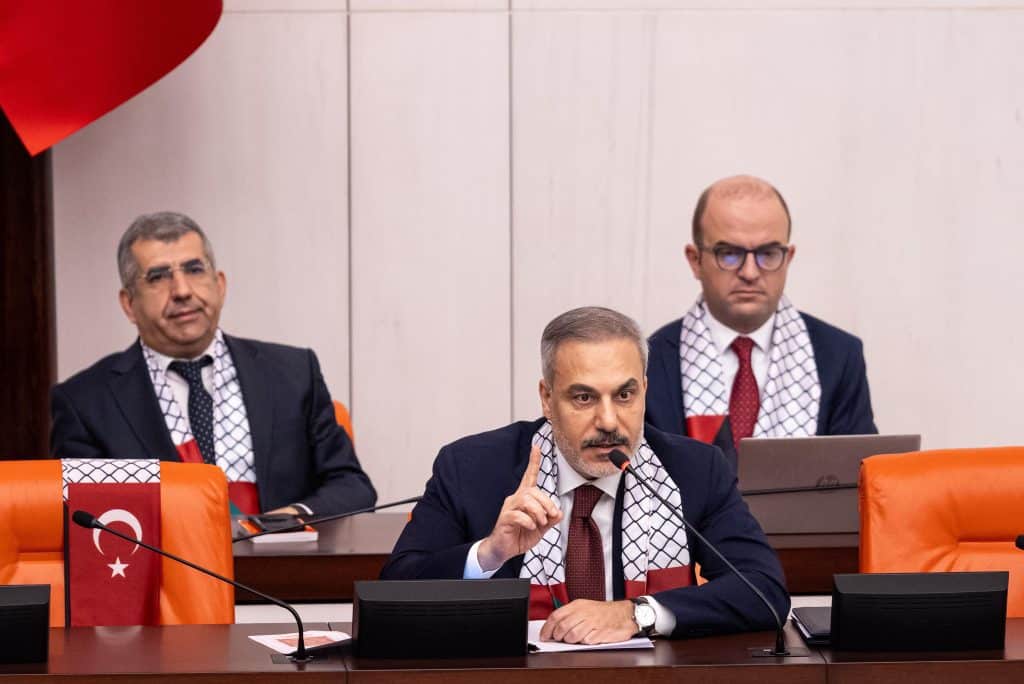Reports on October 1 indicate that several European naval escorts have pulled back from an international aid flotilla bound for Gaza after an exchange of threats and alleged interdiction attempts by Israeli forces. According to statements from organizers and media coverage, the incidents prompted Italy, Spain and Turkey to modify or suspend their protective roles, leaving the convoy exposed during the final and most vulnerable phase of the voyage.
What happened
Organizers of the humanitarian convoy — a multinational group of more than 50 vessels — said that in the early hours of October 1 they experienced what they described as a “threatening incident” involving Israeli military activity near the convoy. The coalition’s account claims that Israel employed electronic warfare measures that interfered with shipboard communications and that naval patrol vessels approached the convoy.

In response to the developing situation:
- Spain reportedly repositioned the frigate Furor (referred to in some accounts as “Anger”) to a rear position about 10–12 nautical miles astern of the flotilla rather than continuing close escort duties.
- Italy is reported to have announced that the frigate Alpino ceased active escort operations and withdrew.
- Turkey is said to have retasked assets to evacuate its nationals from the convoy and removed Turkish armed drones that had been providing aerial coverage.
- Greece stated that it would ensure the safety of vessels transiting its waters but would not dispatch its navy to accompany the convoy into Gaza waters.
Organizers warn that without close naval escorts, the convoy faces significant risks in the last stretch of transit toward Gaza’s coastline. They cited concerns about interception, boarding, seizure of vessels and cargo, and detentions.

Israeli posture and reported plans
Israeli officials, according to local media reports cited by organizers, were prepared to take decisive action to prevent the flotilla from reaching Gaza. Published accounts suggested plans that included deploying additional naval assets to the area, intercepting and detaining participants, and, in some scenarios reported by outlets close to the events, potentially seizing or sinking vessels carrying supplies. Israeli authorities also reportedly mobilized security personnel in connection with potential operations tied to the convoy.
It is important to note that these details come from a mixture of organizer statements and media reporting; independent verification of operational orders or specific actions attributed to the Israeli military was not provided in the material used by convoy spokespersons.

Why the escorts withdrew
Based on public statements and diplomatic responses from the countries involved, several factors appear to have contributed to the decision to withdraw or limit escort duties:
- Escalation risk: Close proximity between naval forces and Israeli patrols, coupled with reported electronic interference, elevated the risk of miscalculation or an armed clash.
- Protection of personnel: Governments cited responsibility to protect their military personnel and nationals aboard. Some states chose evacuation of their citizens rather than engagement in a high-risk standoff.
- Political and legal constraints: Navies operating under national rules of engagement must weigh legal authorization, diplomatic implications and operational risk when deciding whether to accompany civilian-led missions into contested waters.

Humanitarian and geopolitical implications
The developments underscore the fraught maritime and diplomatic environment surrounding aid deliveries to Gaza. Key implications include:
- Humanitarian access: If the convoy is prevented from reaching Gaza, supplies meant for civilians may be delayed or denied, heightening humanitarian concerns.
- Regional tensions: The incident may increase diplomatic friction among Mediterranean and regional players, particularly if further interdictions or detentions occur.
- Precedent for naval responses: The episode highlights how national navies navigate the tension between safeguarding humanitarian missions and avoiding escalation with a state that asserts security prerogatives in its adjacent waters.
What to watch next
- Official statements from the navies and governments involved (Spain, Italy, Turkey, Greece) clarifying rules of engagement and actions taken.
- Communications from the Israeli Defense Forces regarding any interdiction, seizure, or detention operations linked to the convoy.
- Independent verification by neutral observers or international organizations about any boarding, seizures, or losses at sea.
- Humanitarian follow-ups on the fate of cargo, crew and any evacuees.
Context and cautions
This summary synthesizes reports and organizer statements circulating on October 1. Given the fast-moving nature of maritime incidents and the likelihood of competing narratives, readers should treat single-source claims with caution and monitor updates from official and independent channels for confirmation.



